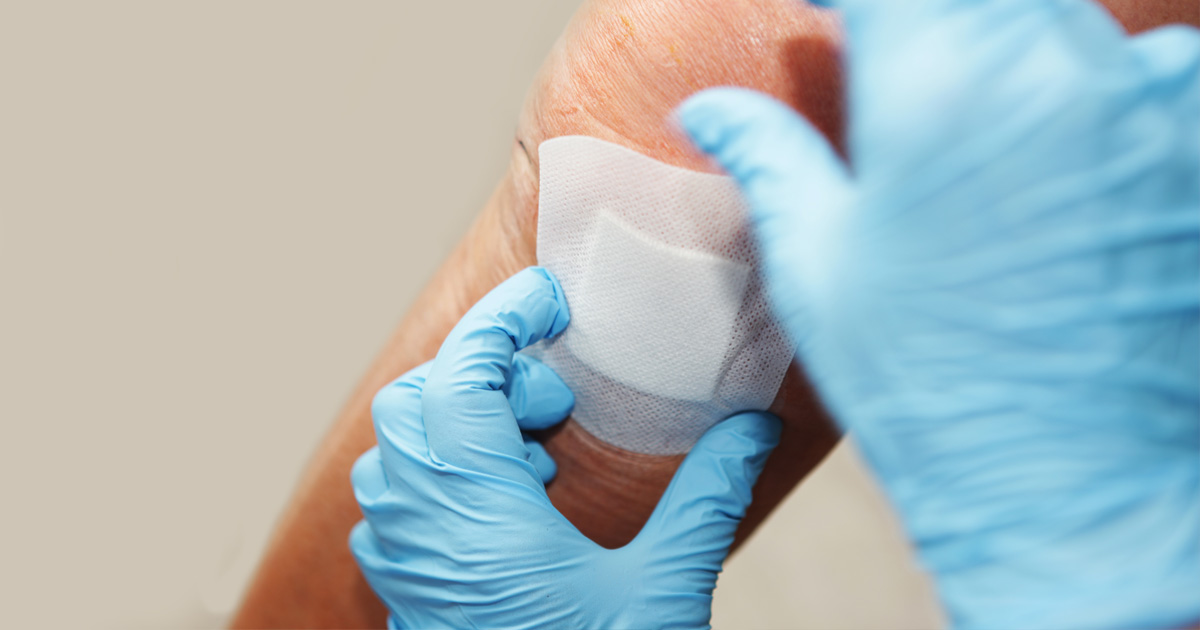Healing Wounds from Head to Toe

If you have a wound that isn’t healing properly, keeping it clean and getting the right treatment are key to preventing infection.
The Advanced Wound Healing Center at AHN Jefferson Hospital offers expert wound care to help you heal and lower your risk of serious health problems.
What can cause wounds or slow down wound healing?
Some health conditions can lead to wounds or make it harder for your body to heal them. The Advanced Wound Healing Center helps people with:
- Diabetes – Can reduce blood flow and feeling in the legs and feet, leading to slow-healing sores or ulcers.
- Venous disease – Causes poor circulation in the legs, which can lead to open wounds or blisters between the knee and ankle.
- Lymphedema – Leads to swelling and skin changes that increase the risk of wounds and infections.
- Edema – Buidup of fluid in the legs and feet that puts pressure on the skin and delays healing.
- Cellulitis – A skin infection caused by bacteria entering through a cut or break in the skin.
“It’s not always the wound that’s the problem — it’s what’s happening underneath,” said Liz Muehlbauer, Nurse Practitioner at the Advanced Wound Healing Center. “Your care team acts like detectives, with every wound giving us clues to what is preventing healing.”
Seeking professional treatment
If your wound isn’t getting better, don’t wait. The sooner you get care, the better your chances for full healing.
Signs it’s time to see a doctor include:
- The wound is warm to the touch and doesn’t cool down after a few days.
- The area around the wound is red, swollen, leaking fluid or pus, or changing color.
- The wound is so deep that you can see muscle or fat beneath it.
At Jefferson’s Advanced Wound Healing Center, your care team will:
- Do a full body check.
- Gently clean and bandage your wound.
- Send a tissue sample to the lab for testing, if needed.
- Create a personalized treatment plan to help you heal.
When a wound takes longer to heal
Most wounds heal in about 4–6 weeks, but some may take longer. If you are not seeing improvement in 10–14 days, your care team may try:
- Compression socks to reduce swelling
- Lab tests reviewed by wound care specialists and your primary care doctor or endocrinologist (expert in hormone conditions), to check for underlying issues
- Hyperbaric oxygen therapy treatments to send oxygen to the wound
- Referring you to plastic surgery for a skin graft (using healthy skin to completely cover damaged or missing skin) or skin flap surgery (partially attaching new skin to the wound)
The care team may also look at your nutrition and lifestyle, since these play a big role in healing.
“Good nutrition is just as important as medical treatment when it comes to healing” said Muehlbauer. “We work with patients to make sure their bodies have what they need to recover — from expert wound care to access to healthy food and nutrition support through our onsite Healthy Food Center.”
Tips for home wound care
Not all wounds require a visit to the hospital. If you don’t have an infection, you may be able to treat it at home:
- Wash your wound daily with mild soap and water. Avoid harsh antibacterial soap.
- Rebandage every day and keep it covered between washes.
- Use Vaseline and dry bandages if the wound looks dry.
You can always ask the specialists at Jefferson Hospital for tips on infection control and healing your wound at home.
Taking steps toward healing
If you’re dealing with a painful or hard-to-heal wound, help is here. The Advanced Wound Healing Center at AHN Jefferson Hospital will provide expert care and get you real answers. Learn more about wound care services available to you.
About Liz Muehlbauer
Liz Muehlbauer, nurse practitioner at AHN Jefferson Hospital’s Advanced Wound Healing Center has a graduate degree in advanced practice nursing. She specializes in such areas as wound care, hyperbaric medicine, and diabetes.
A nonhealing wound can be painful and embarrassing. It also increases your risk of infection. At the Jefferson Hospital Advanced Wound Healing Center, you receive expert wound care that promotes healing.

